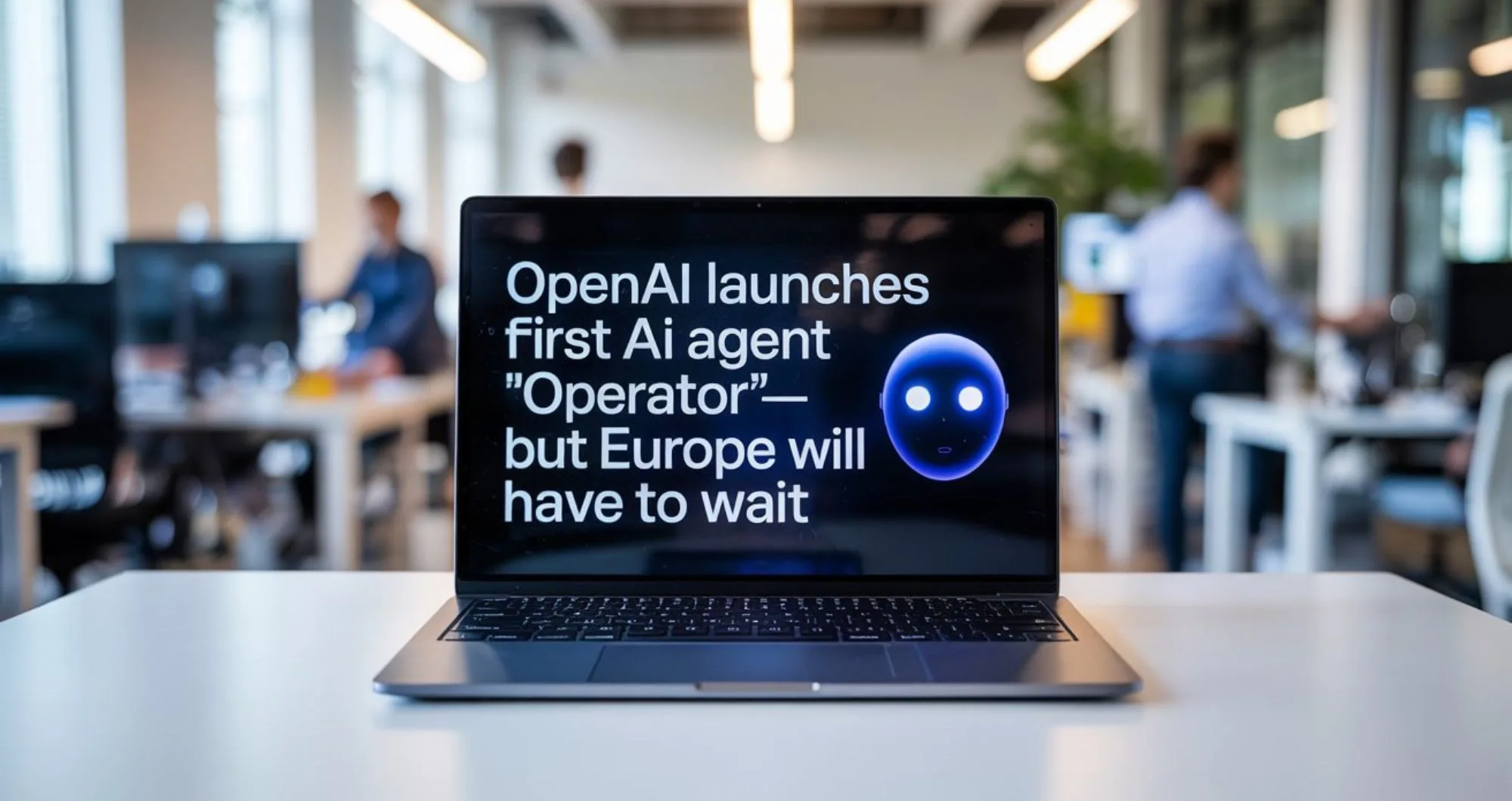OpenAI Introduces Operator, Its First AI Agent, While Europe Faces a Delay

Introduction of OpenAI’s “Operator”
OpenAI has recently introduced “Operator,” an advanced autonomous AI agent that has generated a mix of excitement and anticipation in the technology sector. This launch signifies a major step forward in artificial intelligence, showcasing new capabilities for digital assistants in practical applications. However, European users expressed disappointment as OpenAI announced that Operator would not be available in Europe at this time.
This launch is particularly beneficial for businesses, developers, and innovators who wish to incorporate AI into their operations. As AI technology takes on more responsibilities, the demand for its integration into business processes grows. While companies in the United States are eager to adopt Operator quickly, businesses in other regions, like Germany, must strategize their approaches without direct access to this new tool.
Understanding ‘Operator’
What Makes Operator Unique?
Operator stands out as OpenAI’s first fully autonomous AI agent designed to act on behalf of users. Unlike chatbots, such as ChatGPT that primarily respond to single queries, Operator can handle complex, multi-step tasks. It can manage workflows and integrate with various software tools across platforms.
Capabilities of Operator
Imagine being able to schedule meetings, file reports, respond to numerous emails, and make purchases—all without lifting a finger. That’s what Operator promises to deliver. It operates independently, makes decisions, and executes tasks autonomously.
This new level of automation opens doors for businesses, particularly those collaborating with an AI agency in Germany or elsewhere, to implement sophisticated workflows that go beyond traditional prompt-response systems.
Why Is Operator Not Available in Europe Yet?
Regulatory Challenges
OpenAI has cited regulatory hurdles and the evolving landscape of data protection laws as the primary reasons for delaying Operator’s launch in Europe. The proposed EU AI Act, which is nearing its final approval, imposes strict guidelines on AI deployment concerning autonomy, user consent, and data usage.
The European Perspective
From the viewpoint of AI agencies in Germany, this outcome is not surprising. Europe, particularly Germany, has a long-standing tradition of prioritizing ethics, safety, and data privacy in technology. While this cautious approach may seem like a roadblock to innovation, it is essential for ensuring responsible AI usage.
What European Firms Are Doing
Despite not having immediate access to Operator, many AI service firms in Germany are proactively developing alternative solutions or collaborating globally to explore Operator’s functionalities in controlled environments.
The Big Picture: AI Agents Becoming Essential
Shifting From Assistive to Autonomous AI
The introduction of Operator signals a shift from “assistive AI” to “autonomous AI.” This transition changes how productivity, communication, and operational processes are understood. Instead of merely aiding in decision-making, AI will soon be responsible for making decisions independently and efficiently.
Implications for AI Agencies
For any AI agency aiming to lead in automation and AI transformation, the emergence of tools like Operator presents an exciting opportunity. Those who are quick to test and implement these autonomous technologies, whether through partnerships or custom developments, will gain a significant edge over competitors.
For example, an AI agency in Germany could offer services similar to Operator by combining existing APIs, machine learning models, and task automation platforms. While not an exact replica of OpenAI’s offering, such services could effectively mimic the core functionalities.
Actions for Businesses Now
Opportunities in the Face of Delayed Access
The postponement of Operator’s rollout in Europe can be seen as a chance for businesses to prepare themselves for the future. Companies interested in adopting AI services in Germany should consider taking the following steps:
- Audit current workflows to pinpoint areas most suited for automation.
- Collaborate with local AI specialists to create Operator-like agents using open-source tools and various commercial platforms.
- Stay informed about developments in the regulatory framework, ensuring readiness when tools like Operator become available in Europe.
- Develop data governance policies to align with the upcoming AI directives, enhancing preparedness for new integrations.
The absence of Operator may be perceived as a setback, but it also serves as a period for companies to regroup and strategize. Many players within the German AI landscape are already positioning themselves for forthcoming developments, ensuring their clients will be ready when new technologies are introduced.





